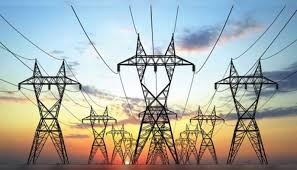
Fuel scarcity: FG working to restore normalcy — Minister
The Federal Government says it is focused on ensuring that the Premium Motor Spirit (PMS) scarcity and queues are normalised.
Minister of State,Chief Timipre Sylva, Petroleum Resources, made this known on Friday while speaking with journalists shortly after inspecting some filling stations in the Federal Capital Territory (FCT), including Conoil and TotalEnergies filling stations in Central Area.
“Mr President directed that we must ensure that the fuel supply situation is normalised quickly. And that is why I have to ensure that we sort out this problem.
“A lot of things have been done. All hands have been on deck, the NNPC Limited, the Nigerian Midstream and Downstream Petroleum Regulatory Authority (NMDPRA), and stakeholders in the supply chain have come together to ensure that the problem is resolved.
“This is not the time for us to apportion blames as the most important thing is that the problem has been resolved and you can see now the queues are no longer there, at least in the FCT we are going around to ensure they have disappeared,” he said.
On marketers who are selling above approved price, especially in other states, he said it was a regulatory issue and within the purview of the NMDPRA to sanction those marketers.
Sylva added that the authority would tackle the issue.
Speaking on the conflicting ex-depot price, he described it as commercial details under the purview of the NNPC Ltd., saying he would ensure that all those conflicting problems were resolved.
President Muhammadu Buhari recently approved constitution of a 14-man Steering Committee on Petroleum Products Supply and Distribution management to find lasting solution to the disruptions in distribution of petroleum products.
The Minister said the committee, which was also part of the solution mechanism, would be inaugurated next week to ensure that the situation normalise totally.
“If you look at the fuel situation in Nigeria, it has a lot of ramifications. The importation of the petroleum product is a problem because a lot of people cannot access the foreign exchange.
“The fuel situation also has nothing to do with politics. Anything, including natural disasters like flood can trigger the fuel distribution hindrance because they are natural factors we are not in control of.
“A lot of the problems that caused fuel scarcity and queues are not within our control there are also all kinds of people who are ready to take advantage of situations and caused problems by seeking for opportunity to make money, hoard and smuggle the product.
“These require intervention of the security agencies and the recent engagement with them definitely helped,” he said.
He expressed sadness about the situation which had subjected Nigerians to pain and frustration, adding the President, was also pained that the citizens were passing through the hardship.
In the bid to futher ensure energy sufficiency, Sylva said the refineries across the country were being rehabilitated and mordula refineries were being anabled while the government was doing everything to ensure scarcity did not reoccur again.
“We had to take 20 per cent stake in Dangote Refinery, these are all efforts by the government to ensure the problem is solved permanently,” he said.
Conoil Filling Station Manage, Mr Francis Sule, confirmed that the queues had reduced.
Sule added that one of the problem the station encountered was associated with Point of Sale (PoS) machine transactions.
Majority of the motorists also confirmed to newsmen that the queues had reduced and appealed to the government to sustain the effort and measures put in place.
Reports that the NNPC Limited had also engaged with the oil marketers and security agencies to find ways of addressing the lingering fuel crisis in the country.



